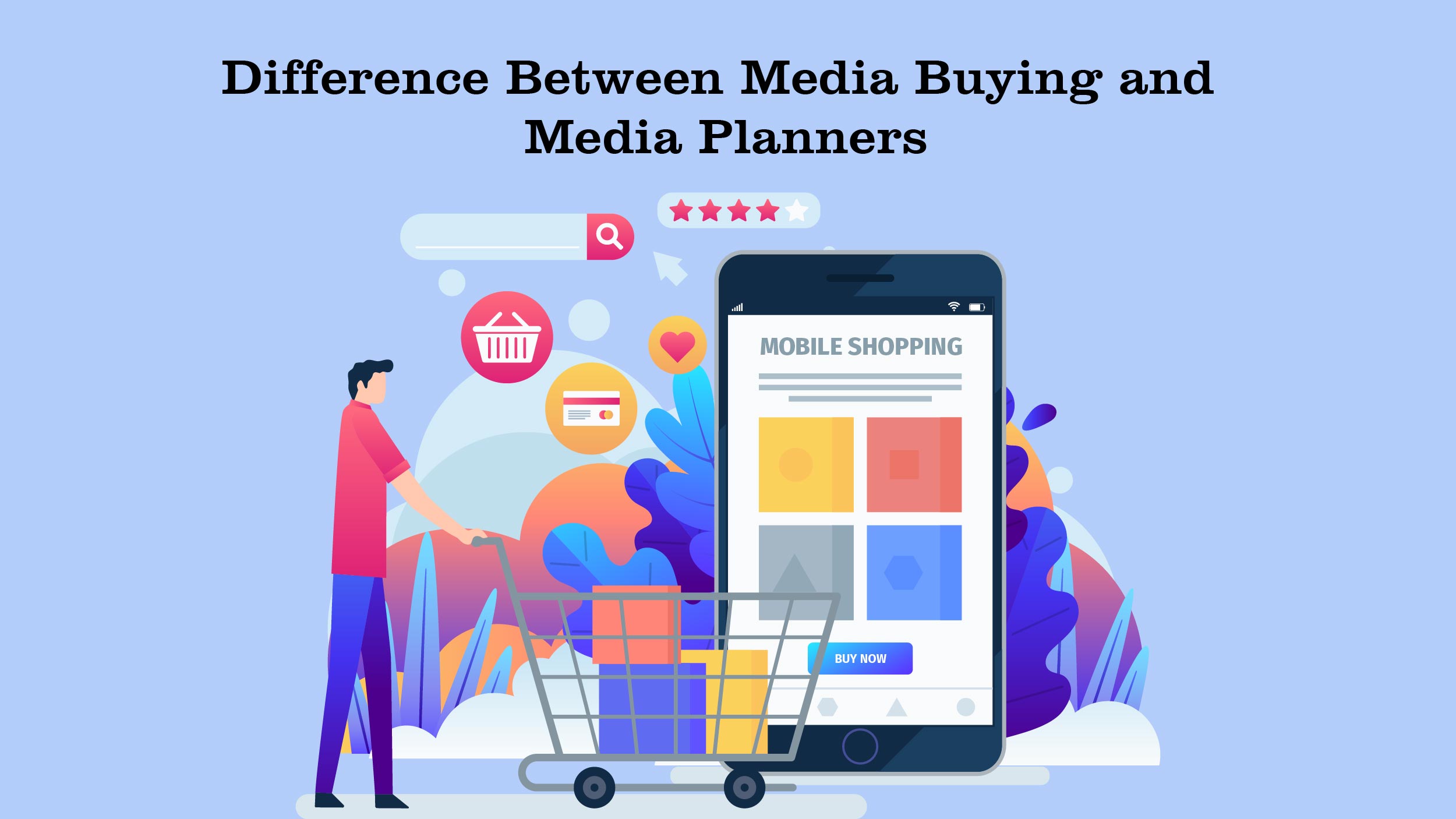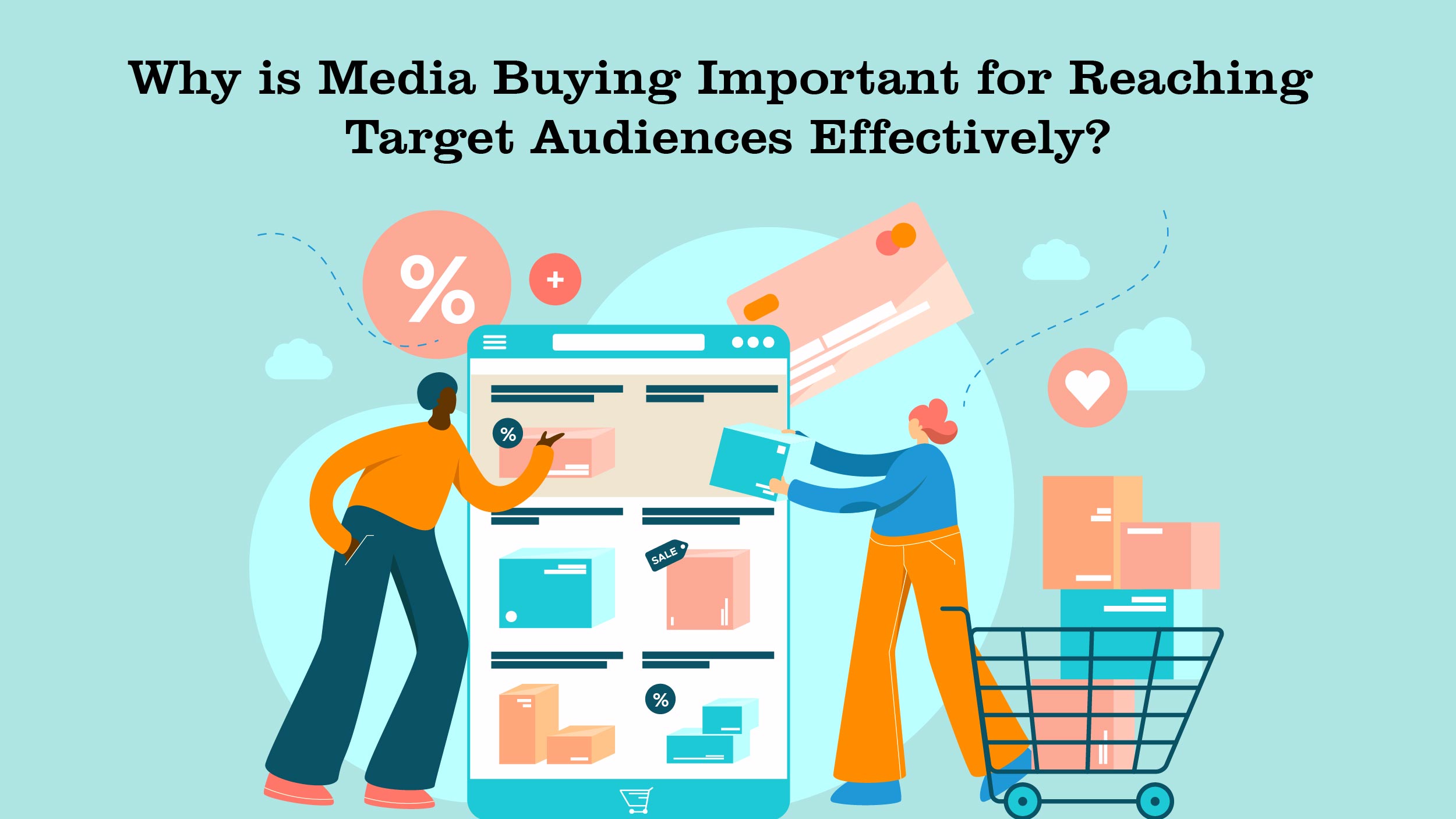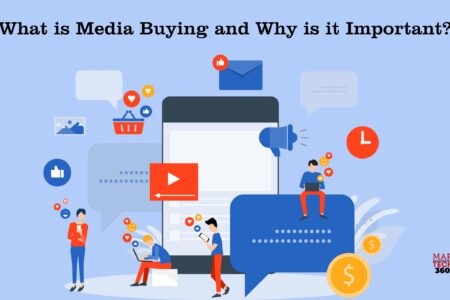In today’s crowded and competitive marketplace, businesses face the challenge of effectively reaching their target audiences amidst the noise and clutter of advertising. This problem is further exacerbated by the fragmentation of media channels and the diverse preferences of consumers. However, media buying emerges as a powerful solution to this problem, enabling businesses to strategically place their ads in the right channels, at the right time, and in front of the right audience. Let’s learn everything about it.
What is Media Buying?
Media buying is the process of buying time and space for advertisements on offline and online media, including TV, radio, YouTube, and websites. In addition, a media buyer oversees budgets, negotiates with publishers for ad inventory, and optimizes advertising to boost campaign effectiveness.
Difference Between Media Buying and Media Planners

Media planning focuses on identifying a target audience, market research, budgeting, and goal-setting. Media planners collaborate with clients to understand the target audience’s preferred channels, optimal timing, and resonant messaging. This data guides the selection of advertising platforms and the negotiation of ad space pricing.
With the media plan set, media buyers engage with their counterparts on the designated media platforms. These typically comprise sales or account executives tasked with identifying appropriate advertisers. Subsequently, negotiations ensued regarding placement timing and costs. Media buyers employ a variety of strategies to carry out media plans.
- Programmatic Buys: This involves AI and algorithm-facilitated real-time bidding in an ad space tailored to consumer profiles. For instance, fashion designers can leverage a platform to automatically bid on and place ads on fashion-centric channels. Direct buys, on the other hand, entail media buyers conducting negotiations on ad rates and run times with a specific advertiser.
- Automated Buying: AI and algorithm-based instant auctions for ad placements that align with consumer profiles (such as fashion designers leveraging a platform to autonomously bid on and display ads across fashion-focused channels).
- Direct Buys: This entails the negotiation of advertising rates and run times between a media buyer and a specific advertiser. For instance, direct collaboration occurs when fashion designers work closely with the Vogue team to strategically place advertisements on their site or magazine.
- Manual Purchase: Engaging in auctions for advertising space and managing bids directly through an advertising platform like AdWords.
Why is Media Buying Important for Reaching Target Audiences Effectively?

- Targeted Reach: Businesses can strategically place their ads in channels relevant to their audience, ensuring engagement and conversion by reaching the right people.
- Optimal Timing: Understanding when the target audience is most active enables businesses to schedule ads for maximum visibility and impact, ensuring the message is received when the audience is receptive.
- Cost Efficiency: By identifying cost-effective channels and negotiating favorable rates, businesses can maximize exposure within their budget, achieving a higher return on investment.
- Message Resonance: Aligning the message with audience needs creates a resonating message that captures attention and interest, enhancing the effectiveness of marketing campaigns.
- Tracking and Optimization: Through monitoring metrics and insights, businesses can gather valuable data on audience engagement and ad effectiveness for improved targeting and campaign optimization.
The Significance of Media Buying
Media buying plays a crucial role; strategically purchased media can have a significant impact on the success of a campaign. Relying solely on compelling copy and visuals is inadequate—ads must be strategically placed in the right locations at the right at the right times and frequencies to ensure they reach the intended audiences. Media buyers can procure ads across a diverse range of media, blending traditional and digital channels seamlessly. Skilled media buyers demonstrate their expertise through effective negotiations with media outlets or channels, ensuring that advertisers achieve maximum performance aligned with campaign goals.
- Get the most impressions—or views—of an advertisement for the least amount of money to maximize their budget
- Obtain the best ad spots
- Get “value added” impressions for free to increase the effectiveness of a campaign. For instance, in addition to the anticipated impressions from TV advertisements, a brand can receive a specific amount of digital impressions
Also read: How Are Media Buying Platforms Integral To Contemporary Branding
8 Important Media Buying Process
- Determining the allocation between guaranteed and non-guaranteed inventory, typically at discounted rates.
- Sending requests for proposals (RFPs) to media outlets and evaluating options to maximize campaign performance.
- Finalizing orders with insertion orders (IOs).
- Trafficking creative content to selected outlets and adjusting ad sizes for optimal placement.
- Launching the campaign with established metrics to measure results.
- Monitoring metrics and internal insights to gauge success and make necessary adjustments against KPIs.
- Reconciling spending against the budget outlined in the media plan.
- Negotiating “make goods” for any under-delivering ads and reconciling costs accordingly.
3 Tips to Streamline Media Buying Process
Here are three tips to streamline the media purchasing process and maximize returns on your ad spend:
- Plan around KPIs: Align ad placements with measurable KPIs outlined in your media plan. Set up reminders to track performance data from ad vendors, ensuring effective monitoring and optimization.
- Leverage RFPs: Use Request for Proposals (RFPs) to standardize proposal information from ad vendors, simplifying the comparison of campaign options and facilitating faster decision-making.
- Consider ad buying agencies: Tap into the expertise of advertising agencies like Hotspex Media to enhance your media plan strategy, vendor selection, and performance tracking. Agencies can provide valuable insights and leverage in negotiating media buys and optimizing your advertising efforts.
4 Challenges Faced by Media Buying
- Marketing Measurement: Attribution models that accurately represent the entire media mix are essential for understanding campaign effectiveness and optimizing budget allocation.
- Optimizing Campaigns In-Flight: Real-time metrics are crucial for making timely adjustments to underperforming ads during active campaigns, necessitating investment in robust marketing platforms.
- Avoiding Ad Fraud: Programmatic advertising, while offering real-time placements, poses risks of ad fraud due to minimal review of ad placement sites, leading to wasted ad spend and mismanaged budgets.
- Clear Contracts: Ensuring that negotiated terms are clearly stated in contracts is vital to meeting specific expectations and avoiding wasted resources targeting irrelevant audiences or misaligned objectives.
How to Negotiate for an Effective Media Buying Process
Negotiating media buys effectively involves thorough research, clear budget planning, and strategic backup plans. Here are some key tips:
- Do Your Research: Understand industry lead costs, standard ad placement costs, and ad performance metrics on various sites.
- Set Budget Parameters: Determine the overall budget and prioritize spending based on past results or target audiences.
- Have a Backup Plan: Prepare alternative options in case preferred publishers or networks are unavailable or exceed budget constraints.
- Establish an Anchor: Start negotiations with a lower bid to allow room for adjustment and leverage during the negotiation process.
- Lead Generation Filters: Define lead generation criteria upfront to avoid complications during negotiations.
- Negotiate Value Add-Ons: Request additional benefits like extra ad placements or banner ads to maximize exposure within budget constraints.
- Legalize: Ensure all negotiated terms are clearly outlined in the contract to avoid misunderstandings or discrepancies.
End Note
Media buying involves a lot of intricacy since getting the best possible ad placement for conversion and customer experience is crucial. Media teams can more effectively optimize spend and planning by keeping up with the latest negotiation techniques and media purchasing strategies discussed in this article.

